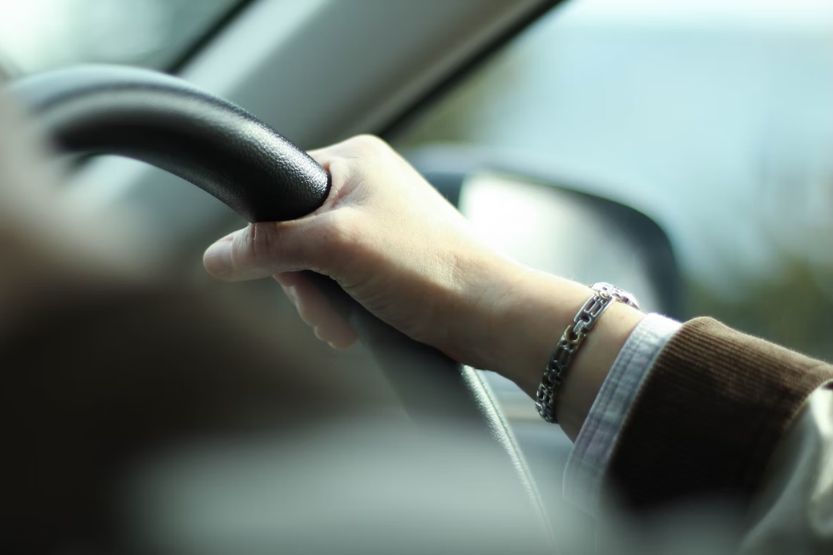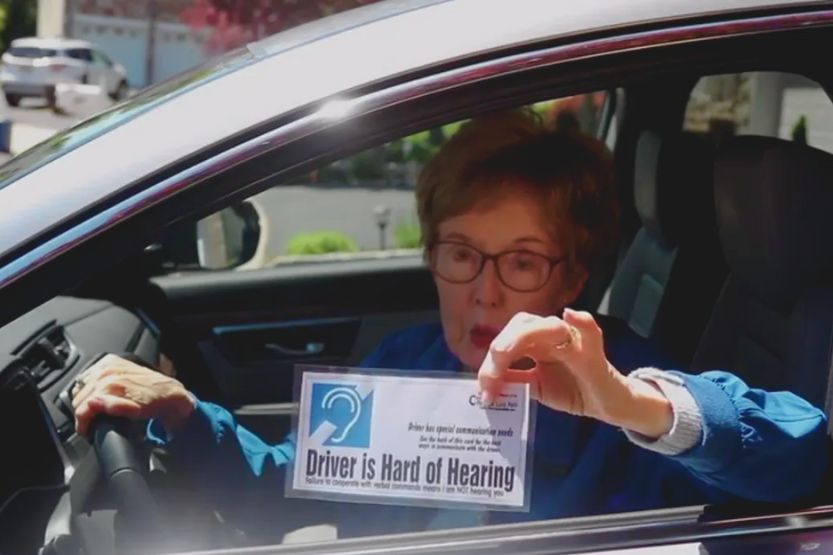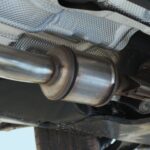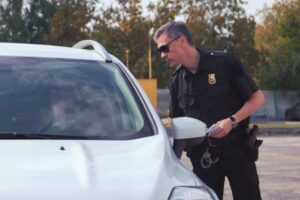People often wonder if deaf people can drive. This is not impossible, anyway. They can do most things done by people with 100% hearing. Sometimes, they can even do it better. This brings me to the question, can deaf people drive? Is it illegal for a deaf person to drive?
Deaf people have the right to drive in all 50 U.S. states legally. They are not prevented from driving. To apply for a driver’s license, they must disclose their hearing issue to their local Department of Motor Vehicle (DMV). They must also comply with the criteria imposed by DMV.
Read on to learn more about deaf drivers, including their common misconceptions, driving skills, and driving restrictions.
Can Deaf People Drive?

Have the Right to Drive in the United States
Deaf people have the right to drive in the United States legally. They are not prevented from driving. They even have an increased ability to drive with caution.
Report Hearing Issue to the Local DMV
When applying for a driver’s license, they must report their hearing issue to their local Department of Motor Vehicle (DMV). Also, they must comply with the criteria imposed by DMV.
Not a Hindrance to an Individual’s Ability to Drive
It is a common misconception that deaf people are not capable of driving. But studies have shown that deafness is not a hindrance to an individual’s ability to drive. There are many safety precautions that deaf people can practice to drive safely.
Equipped with Special Devices That Alert Them of Emergency Vehicles and More
Deaf drivers use special devices to alert them should there be any emergency vehicle sirens nearby. The same devices can also detect car horns. Panoramic mirrors are also available for deaf drivers.
Capable of Driving with Extra Caution
These enhance their visual perception and provide them with a greater sense of other vehicles or objects around them. This way, they become capable of driving with extra caution.
The capability of deaf people to drive opens up many opportunities for them. They don’t only get to run errands for their families, but it is possible to get access to employment too.
Misconceptions About Deaf Drivers
Unfortunately, the right of deaf individuals to drive has led to several legal issues. Some car rental companies don’t entertain deaf drivers. This has resulted in disputes in favor of providing equal treatment to deaf individuals.
There was also a legal case in 2006 involving a company that refused to employ deaf drivers due to safety concerns. The court’s decision ruled against the company, which has become a vital precedent for legal cases of the same kind in the future.
Studies show that deaf people have improved peripheral vision. This becomes an advantage among deaf drivers. Visual cues are vital components for all drivers.
And since deaf drivers have enhanced peripheral vision, they become more alert and aware of the driving behavior of other drivers on the road. This makes them drive safely, if not more than drivers with perfect hearing.
Can a Totally Deaf Person Drive?
A Deaf Person Is Capable of Driving
A totally deaf person is capable of driving. All deaf drivers, including those with complete hearing loss, are allowed to drive and can safely do so as drivers with perfect hearing. This was explained by Casey Feldman Foundation founder and practicing lawyer Joel Feldman in 2021.
Feldman has handled several legal cases involving deaf drivers and has known that deaf drivers can get driver’s licenses ever since. He is also aware of widespread ignorance and opposition regarding driving and the deaf.
No Evidence That Deaf Drivers Are Involved in More Road Accidents Than Other Drivers
There is no evidence that deaf drivers are involved in more road accidents than drivers with perfect hearing. Studies have shown that deaf drivers have 20 percent better peripheral vision than those who can hear well.
Some are concerned about the inability of deaf drivers to hear emergency sirens. Some are concerned about their inability to hear honking cars.
Deaf Drivers Use Special Devices
They say these circumstances put deaf drivers at a disadvantage. But these do not make deaf drivers less safe and result in an increased number of road accidents.
The general public must also be aware that deaf drivers use special devices. These devices emit visual warnings whenever cars are honking or emergency sirens are around.
Is It Illegal to Sleep in Your Car in a Parking Lot?
Can You Get a Driver’s License If You Are Deaf?

The right to get a driver’s license is not only for those with perfect hearing. Even deaf drivers have the right to get one. They can get either a non-commercial or a commercial license.
Deaf drivers did not have this kind of right in the past. In the 1920s, the first motor vehicle laws were implemented in the United States. Unfortunately, deaf people were denied this right, and several U.S. states refused to allow them to drive.
All U.S. states have implemented laws allowing deaf people to drive. However, deaf drivers still experience discrimination.
Some companies still refuse to hire deaf drivers, and rental companies don’t allow deaf drivers to rent vehicles. Also, car dealerships don’t allow deaf drivers to test drive units.
The deaf community exerted a lot of effort before they were allowed to get driver’s licenses. Nonetheless, all their efforts paid off. Being entirely accepted, especially in terms of employment, is another issue they have to face.
But nothing is impossible. Indeed, there will come a time when all employers will finally agree that hiring deaf drivers is just as advantageous as hiring hearing drivers, if not more.
What Are the Requirements for a Deaf Driver’s License
Undergo the Same Process as Other People
Deaf people undergo the same process as other people to get their driver’s licenses. Of course, the number one requirement is that they pass the driving test.
Deaf Drivers Can Get Interpreters
The difference lies in the fact that deaf drivers have interpreters. That way, the instructions will be efficiently relayed to them.
The interpreter can sit either in the passenger seats or back seats during the driving test. If they choose to stay at the back, they communicate with the deaf driver through the rearview mirror.
Same Driving Rules as Other Drivers
Drivers with perfect hearing are expected and are mandated to follow all driving rules. The same driving rules apply to deaf drivers. However, there are added rules that they must adhere to. For instance, they should be equipped with hearing aids.
Vehicles Should Have Special Devices to Help Them Drive Efficiently
Also, their vehicles should be equipped with special devices that will allow them to drive efficiently and conveniently.
Special devices include visual warnings that alert deaf drivers of emergency sirens and cars honking. These also include panoramic mirrors that better view the road and other vehicles. In essence, all these special devices allow deaf drivers to drive conveniently.
These are the things taken into consideration before getting a driver’s license.
How Does a Deaf Person Take a Driving Test?
When taking a driving test, deaf drivers normally have interpreters. That way, the examiner’s instructions are communicated to them efficiently. Interpreters typically sit in the passenger’s seat of the vehicle, leaning forward while giving instructions using sign language.
In other cases, interpreters sit at the back and communicate with deaf drivers through the rearview mirror.
Once they pass the test, the DMV will give them license plates with “HI” letters, which means “hearing impaired.” This makes them readily identifiable to all other drivers or law enforcement.
What Information Can You Get When Checking Driver’s License Status?
Driving Restrictions for Deaf People
Report Hearing Problems to the Local DMV
Before deaf people can apply for their driver’s licenses, they must first report to their local Department of Motor Vehicles about their hearing problems.
DMV Will Assess Whether the Driver Will Need Hearing Aid
The DMV has to assess if the deaf driver should be required to wear a hearing aid or have a full-view mirror in the car. They will also assess if their vehicle is equipped with special devices.
Full View Mirror Restriction
The restrictions will be included in the driver’s license card. For instance, if the driver has a full-view mirror restriction, this will appear on the card as “F.” The international symbol for the deaf will also be placed on the card of all deaf drivers. In some cases, this appears as a numerical code.
The most convenient way for deaf people to apply for a driver’s license is by enrolling in a driving school for the deaf. This way, they will know everything they need to know about driving. This also assures the DMV that they are well-equipped to drive.
Again, can deaf people drive? Those who are deaf and with partial hearing loss are allowed to drive. And they can safely drive like the drivers who can hear.
Deaf Drivers Statistics
Auditory information is very vital for driving. Despite that, only a few data show that hearing impairments harm one’s driving ability.
In a 1963 study conducted by Coppin and Peck, it was concluded that deaf drivers drive poorly compared to non-deaf drivers. However, in a 1994 study by McCloskey, Koepsel, Wolf, and Buchner, the results did not significantly increase road accidents involving deaf drivers.
But there was a finding that those with hearing aids faced more risk of an injury collision. They could only speculate that this could be due to hearing aid feedback that may result in distraction. However, there are no further studies to prove this.

Here are some frequently asked questions related to the ability of deaf people to drive:
Do Deaf People Get Driving Licenses?
Deaf people in the United States can get a driver’s license after passing the official driving test.
It is a common misconception that people who can’t hear can’t drive as well. However, studies have shown that deafness does not harm a person’s ability to drive.
There are many safety measures that deaf drivers can apply to ensure that they are as equipped to drive as drivers with perfect hearing.
These include hearing aids and other special devices that alert them if emergency sirens and cars are honking nearby.
Can a Deaf Person Drive in Florida?
In Florida, deaf people are given the right to get a driver’s license and drive just like other drivers with perfect hearing. The state believes that deafness should not hinder a person from being issued a driver’s license.
Can a Deaf Person Drive in Ohio?
In Ohio, deaf people do not only get the opportunity to drive non-commercial vehicles. But they are given the right to obtain a Commercial Driver’s License (CDL) to drive commercial vehicles.
Ohio is one of the first few states to do this following the Federal Motor Carrier Safety Administration (FMCSA) implementation of a hearing exemption waiver.
How Does a Deaf Person Take a Driving Test?
Typically, deaf people take their driving test with their interpreters, who communicate the examiner’s instructions. That way, deaf drivers will efficiently understand what is expected of them to pass the driving test.
Interpreters may sit in the passenger’s seat. They lean forward as they give the instructions using sign language. Other interpreters sit at the back and communicate with the deaf driver using the rearview mirror.
Is It Illegal for a Deaf Person to Drive?
No. As long as they have a driver’s license, deaf drivers can legally drive a vehicle. In some U.S. states, if not all, deaf people are not only allowed to drive non-commercial vehicles. But they are also allowed to drive commercial ones, as long as they have a commercial driver’s license.
What Are the Requirements for a Deaf Driver’s License?
Deaf driver’s license requirements are typically the same as drivers with perfect hearing. It’s just that they have added requirements such as being evaluated by the local Department of Motor Vehicles (DMV).
Deaf people need to report their condition to the DMV. This way, they will be properly assessed if there is a need to wear a hearing aid. At the same time, they will be evaluated to determine what kind of special devices should be installed in their vehicles.
Should a Deaf Person Drive?
Statistics show that there are about 600,000 deaf people in the United States. That is about 0.22 percent of the whole population across all age groups. The majority of deaf people are 65 years old and above.
Studies show that people with hearing impairment tend to become more visually observant than perfect hearing. They drive more cautiously and even follow driving rules more mindfully.
Just like any other person with perfect hearing, deaf people are also allowed to drive if they want to. As long as they are well-equipped to do so, they have the right to get a driver’s license and drive a vehicle.
Is Hearing Important for Driving?
The sense of sight is the most vital requirement for driving. But the sense of hearing makes it even more convenient to detect emergency vehicles and other cars honking. That’s why deaf drivers have special devices that alert them of emergency sirens.
How Do Deaf Drivers Hear Sirens?
Deaf drivers have special devices installed in their vehicles. These include visual warnings should there be emergency vehicles nearby. The devices visually alert them, too, if cars are honking.
Are There Any Assistive Technologies That a Deaf Driver Uses When Driving?
Yes. There are assistive technologies available for deaf drivers. These include wide angled mirrors, panoramic mirrors, and oversized rearview mirrors. Deaf drivers must wear hearing aids and carry extra hearing aid batteries while on the road.
In Closing
To sum it up, deaf people have the right to drive in the United States legally. They are not prevented from driving. They even have an increased ability to drive with caution.
When applying for a driver’s license, they must report their hearing issue to their local Department of Motor Vehicle (DMV). Also, they must comply with the criteria imposed by DMV.
It is a common misconception that deaf people are not capable of driving. But studies have shown that deafness is not a hindrance to their ability to drive. There are many safety precautions that deaf people can practice to drive safely.
It took years before laws about deaf drivers were passed. But no matter how long it took, their efforts to fight for this right have paid off. However, most deaf drivers still experience discrimination when it comes to employment.
But nothing is impossible.A time will come when employers will hire more deaf drivers.
Read next:









